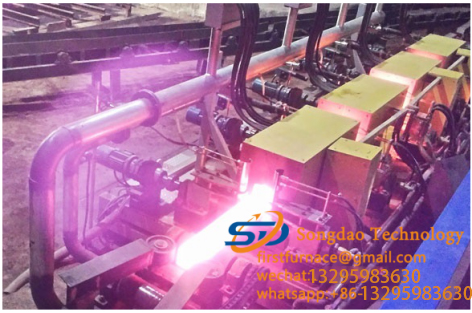- 17
- Dec
45#steel hardness after quenching and tempering
45#steel hardness after quenching and tempering
The hardness of 45# steel quenched and tempered parts after quenching should reach HRC56~59, and the possibility of large cross-section is lower, but it cannot be lower than HRC48.
Quenched and tempered of 45 # baja 45# steel is a medium-carbon structural steel with good cold and hot workability, good mechanical properties, low price and wide sources, so it is widely used. Its biggest weakness is that it has low hardenability, large cross-sectional dimensions and high requirements for workpieces that are not suitable for use.
Untuk
The quenching temperature of 45# steel is A3+(30~50) ℃. In actual operation, the upper limit is generally taken. A higher quenching temperature can speed up the heating of the workpiece, reduce surface oxidation, and improve work efficiency. In order to homogenize the austenite of the workpiece, sufficient holding time is required. If the actual amount of furnace installed is large, the holding time needs to be extended appropriately. Otherwise, there may be insufficient hardness due to uneven heating. However, if the holding time is too long, coarse grains and serious oxidative decarburization will also occur.
Untuk
Quenching and tempering: Quenching and tempering is a double heat treatment of quenching and high temperature tempering, and its purpose is to make the workpiece have good comprehensive mechanical properties. Quenched and tempered steel has two categories: carbon quenched and tempered steel and alloy quenched and tempered steel. Regardless of whether it is carbon steel or alloy steel, its carbon content is controlled strictly. If the carbon content is too high, the strength of the workpiece after quenching and tempering is high, but the toughness is not enough. If the carbon content is too low, the toughness will increase and the strength will be insufficient.

